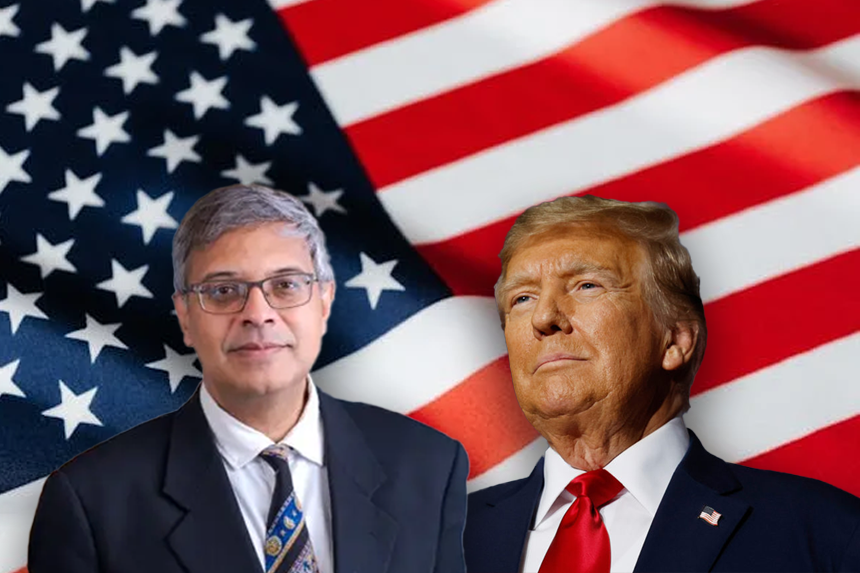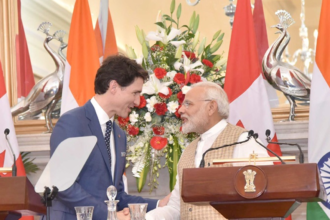US President-elect Donald Trump has named Jay Bhattacharya, a leading critic of COVID-19 lockdowns, the director of the National Institutes of Health (NIH), the world’s largest government-funded biomedical research institution.
The Stanford University-trained physician and economist rose to prominence during the pandemic for co-authoring the Great Barrington Declaration, a controversial open letter opposing widespread lockdowns. Instead, the declaration advocated protecting vulnerable populations such as older people.
Bhattacharya, who has frequently criticized the US public health response to Covid-19, expressed gratitude for the nomination. Posting on X, formerly Twitter, he said:
“We will reform American scientific institutions so they are worthy of trust again and will deploy the fruits of excellent science to make America healthy again!”
Trump described Bhattacharya as a key figure in his efforts to overhaul the nation’s scientific and medical institutions, stating:
“Jay will work with Robert Kennedy Jr. to restore the NIH to a Gold Standard of Medical Research as they examine the underlying causes of, and solutions to, America’s biggest health challenges, including our chronic illness and disease crisis.”
Why Are Pandemic Critics Central to Trump’s Health Team?
Bhattacharya’s nomination is part of a broader shakeup of US health agencies. Trump has assembled a team of appointees who have been mainly critical of the public health establishment’s handling of the pandemic.
In addition to Bhattacharya, Trump has nominated:
- Marty Makary, a Johns Hopkins surgeon and vocal opponent of COVID-19 vaccine mandates, to lead the Food and Drug Administration (FDA).
- Dave Weldon, a physician and former Republican congressman who has questioned vaccine safety, to head the Centers for Disease Control and Prevention (CDC).
- Dr. Mehmet Oz, a television personality, oversees the Centers for Medicare and Medicaid Services (CMS).
These appointments have stirred both support and controversy. Bhattacharya, in particular, has faced criticism for his stance on the Great Barrington Declaration. At the time, then-NIH director Francis Collins dismissed the declaration as dangerous and labeled its authors “fringe experts.”
What Role Will Robert Kennedy Jr. Play in Trump’s Health Agenda?
Earlier this month, Trump announced his choice of Robert Kennedy Jr., a prominent vaccine skeptic, to lead the Department of Health and Human Services (HHS). Kennedy, a Democrat-turned-independent, is known for his unorthodox views on vaccine safety and his advocacy for stricter regulation of food ingredients.
Kennedy’s nomination has alarmed parts of the medical community but has won praise in some circles for its focus on addressing chronic illnesses. Trump praised Kennedy’s leadership, stating:
“Robert will bring much-needed reform and accountability to America’s health institutions.”
If the Senate confirms all three, Kennedy will oversee the agencies Bhattacharya, Makary, and Weldon run.
Why Are Trump’s Picks Generating Mixed Reactions?
Trump’s health policy team has generated mixed reactions, even among conservatives. While his allies broadly welcome the appointments, some of his picks have raised eyebrows.
One notable nomination is Dr. Janette Nesheiwat, a Fox News medical contributor, as surgeon general. Her prior support for masking schoolchildren during the pandemic and opposition to abortion restrictions have drawn criticism from parts of Trump’s base.
The president-elect’s health overhaul reflects a deep skepticism of the public health establishment, which he has accused of mishandling the pandemic. Critics worry his choices may undermine public trust in science, while supporters believe the nominations will bring long-overdue reform.
What Lies Ahead for Trump’s Health Nominees?
All five of Trump’s top public health appointees, including Bhattacharya, must be confirmed by the Senate before taking office. The confirmation process will spark heated debate over their records and qualifications.
With the inauguration set for January 20, Trump’s vision for a radically different approach to public health is already taking shape. Whether it will deliver the reform he promises or deepen divisions in an already polarized field remains to be seen.








